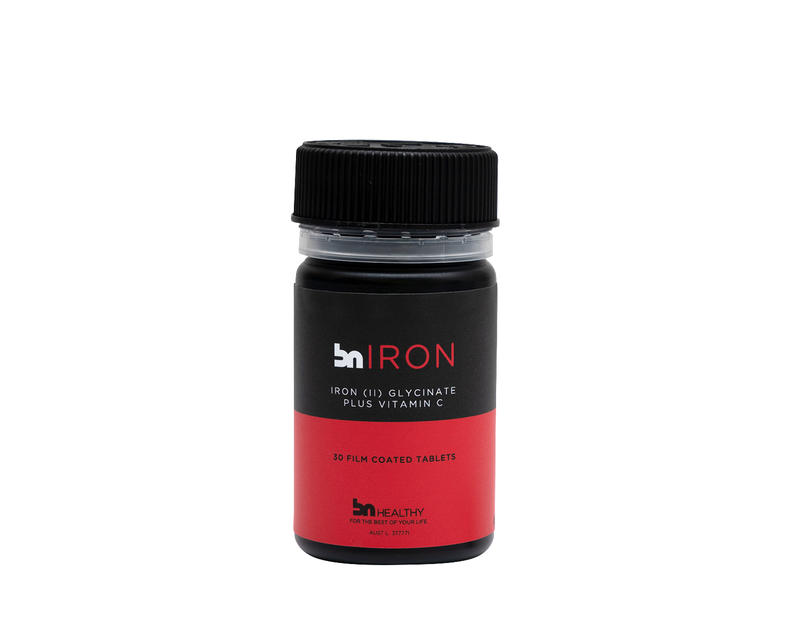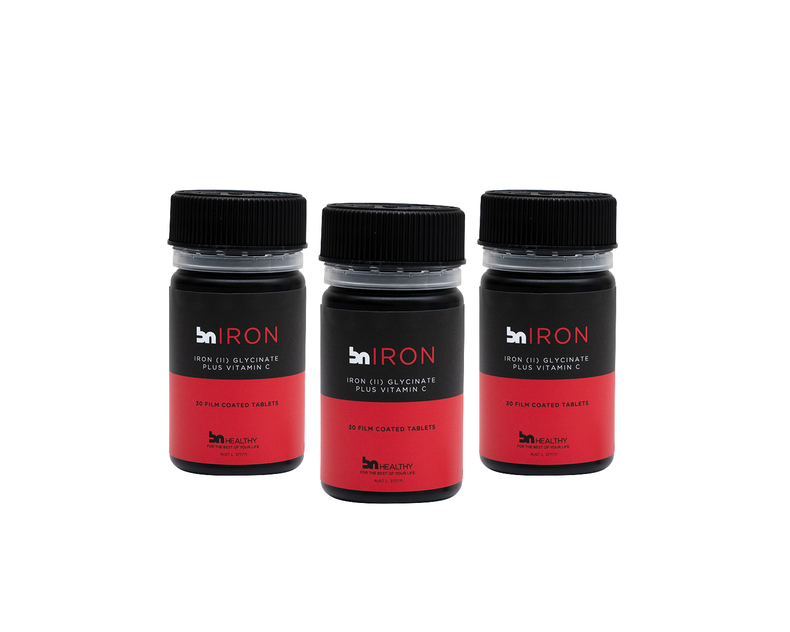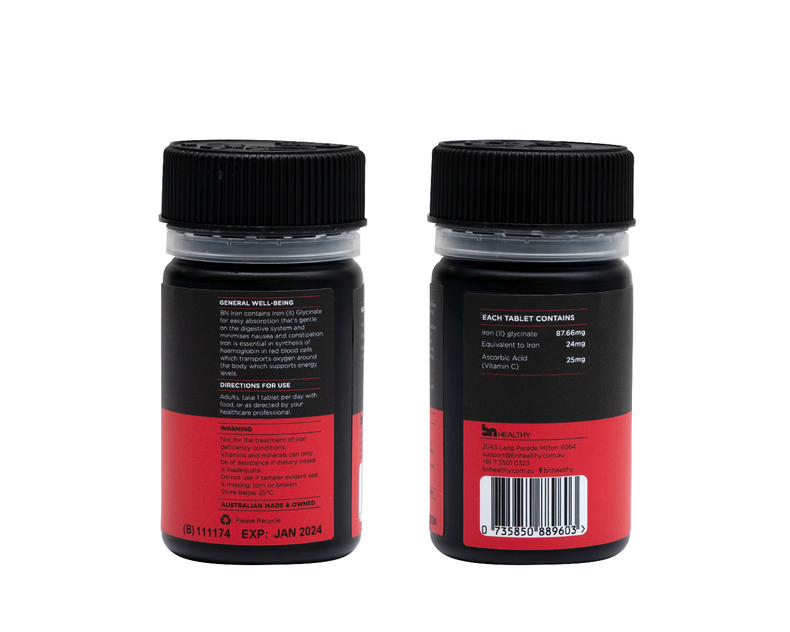Feb 2022
Jacqui Lewis - BHSc Nutritional and Dietetic Medicine
Boost your energy and live your best life after weight loss surgery!

After your Weight Loss Surgery, it can be natural to experience fatigue and weakness.
There is a limit to the amount of food you can physically accommodate, coupled with the fact that your body now absorbs some nutrients poorly (malabsorption). If you are experiencing long periods of feeling excessively drained, it's good to check in with your healthcare team before it goes on for too long.
Generally, with a holistic approach to your health, you can quickly get back to your energetic self. Here are some tips to help get that Spring back in your step!
6 causes of fatigue after WLS and how to beat them!
1. Lack of Protein & Carbohydrates
After WLS, your daily need for protein is about 1g-kg of your ideal body weight. For example: if your ideal weight is 90kg, you will need around 90g of protein throughout the day. Falling short will have quite a few repercussions like:
- Lack of energy
- Loss of strength
- Pose a negative impact on the production of hormones and chemical messengers that regulate your metabolism, energy production, and hormone balance.

Protein deficiency is linked to reduced muscle mass and also contributes to hair loss. Maintaining good levels of muscle will increase your metabolism and make managing your weight easier over the long haul.
Be sure to include at least 25g of protein in every main meal, and snacks should be
10-15g protein as well to reach your target.
Carbohydrates create an excellent fuel source in the body, and removing carbs from your diet can lead to a feeling of fatigue and irritability because your brain prefers to run on glucose. Make sure each meal has slow-burning carbohydrates like brown rice or pasta, sweet potatoes, or rye sourdough bread. Quick hits like white pasta and bread are a recipe for elevated hunger later in the day and a "mid-afternoon slump" and should be avoided.

2. Alcohol Consumption
Alcohol is often a massive contributor to how we feel overall. We all know that at the time, it can feel like we didn't have a care in the world, and "a few drinks to relax never hurt anyone." However, alcohol in any amount has a wide range of sneaky side effects we might not tie together.
Alcohol is a stimulant and disinhibitor that disrupts sleep and is often a slippery slope when making wise food choices. And even a few casual drinks to wind down can have far-reaching effects on your long term success, especially as we get a bit older.
Not only do we make some exciting food choices when we have had a few drinks, but we also stay up later, endure broken sleep, wake up feeling less refreshed, are more likely to dip out on our morning walk - and the day starts with us sitting behind the 8 ball.
From a nutritional perspective, alcohol consumption has a range of effects:
- Alcohol robs us of B group vitamins - and these are key players in our energy levels.
- Alcohol inhibits protein absorption by up to 70% - and when your whole metabolism is set up on getting enough protein, can we really afford to jeopardise it?
- Alcohol stimulates cravings for sugar and carbs by messing up our blood glucose regulation.
- Vitamin B12 plays an essential role in producing brain chemicals that affect our mood and other crucial brain functions. Low levels of B12 and B6 have been linked to depression. Drinking alcohol regularly for more than two weeks decreases vitamin B12 absorption from the gastrointestinal tract. 1
3. Malnutrition / Malabsorption
After gastric sleeve and bypass surgery, some nutrients are not absorbed like they used to be. Daily supplementation is critical, and this is why bariatric specific multis fit the bill for you for life now.
For optimal energy production, B12, iron, magnesium, B6 Folate, and a range of other nutrients contribute to creating a good energy supply each day. So, eating lots of different coloured foods and taking your multivitamins are crucial to maintaining your "Nutritional Fitness."

As an example of your exaggerated nutritional needs, take iron and B12 as an example - before surgery, the average person needs 1-3mcg of B12 daily to encourage a healthy blood nervous system and maintain a good level of energy and vitality.
Gastric sleeve and bypass surgery permanently reduce your ability to absorb B12, and only about 1% of the total B12 can be used in the body. This is why you’ll see 500mcg of B12 in your bariatric multi - offering about 5mcg of B12 overall.
Iron absorption is a similar story - before surgery, about 23% of iron from food or supplements is absorbed and converted to storage. This precious mineral required for healthy blood, clear thinking and adding that little spring in your step is also impacted by WLS, bringing the amount absorbed down to as low as 6.2% from animal sources and even lower, at 4.7% from plant sources. 2

4. Lack of Exercise
When we feel flat, sometimes exercise is one of the first things we cross off the "to do" list.
Often when you feel too tired to get to the gym or go for a walk, doing precisely this can be the key to better energy production and feelings of vitality.
Start with a 20 mins walk each day and work up from there.
The research shows that the goal of reaching 10,000 steps every day not only improves your mental health but has far-reaching effects on your sympathetic nervous system - making "rest and digest" or relaxation, digestion and elimination much more efficient. The ability to rest and digest directly reflects your health, resilience, and vitality.
Reducing stress and being more active will always lift your spirits and energy levels.
5. Stress
The number one contributor to overwhelm and fatigue, relates to stress management.
If you are continually feeling like a deer in the headlights for whatever reason, this is a good indicator you are being drained of vitality. High-stress states do come and go, and your body is geared to manage these.

However, periods of long term low-grade stress are more insidious and can become the seat of many health issues such as depression, muscle wasting, anxiety and burnout. If you find you are stressed more than you are in control, it's an excellent time to seek some support. Psychological intervention is a key to gaining insight into the way we deal with stress and provides some fantastic tools to support you on the way to a happier and much healthier way of life.

6. Poor Sleep
Poor sleep quality or interrupted sleep, and once again, nutrition can affect how we rest. Without enough quality, "shut-eye" will start the day behind the 8 ball. Lack of sleep is classed as an "inflammatory state" and means we are stretching most systems in the body as a result.
We have done a great series on good sleep hygiene; you can read more about it here:
If you're feeling fatigued and lack the energy to get through the day, it's worth looking at your lifestyle to see what healthy changes you can improve to boost your energy levels and help you live your best life every day. By reaching your daily protein goals, reducing alcohol consumption, taking your bariatric vitamins and minerals daily, exercising and getting enough sleep - you may find your sleep and energy improve significantly in no time at all.
Remember, it takes time to change our habits. They won't happen overnight. However, stay consistent, be patient, be open-minded as you work your everyday energy to live your best life naturally.
Jacqui Lewis
BHSc Nutritional and Dietetic Medicine
1. Jáuregui-Lobera, I., 2013. Iron deficiency and bariatric surgery. Nutrients. Available at: Click here
2. Anon, 2020. Drinking Robs B Vitamins. Sierra By The Sea. Available at: Click here




